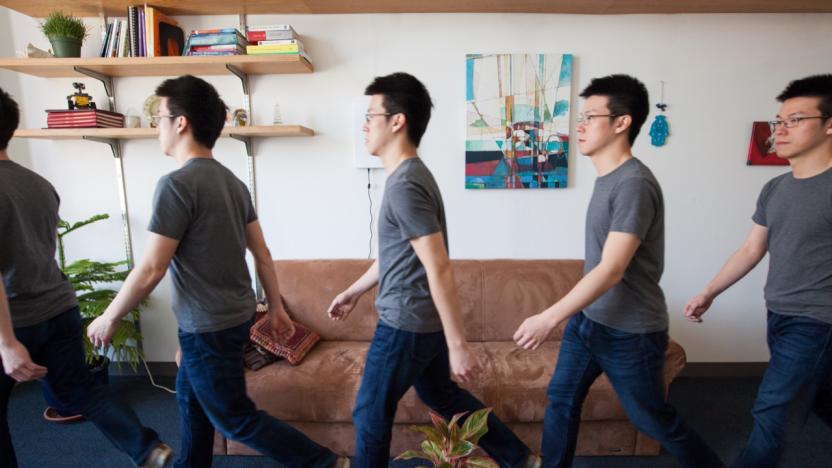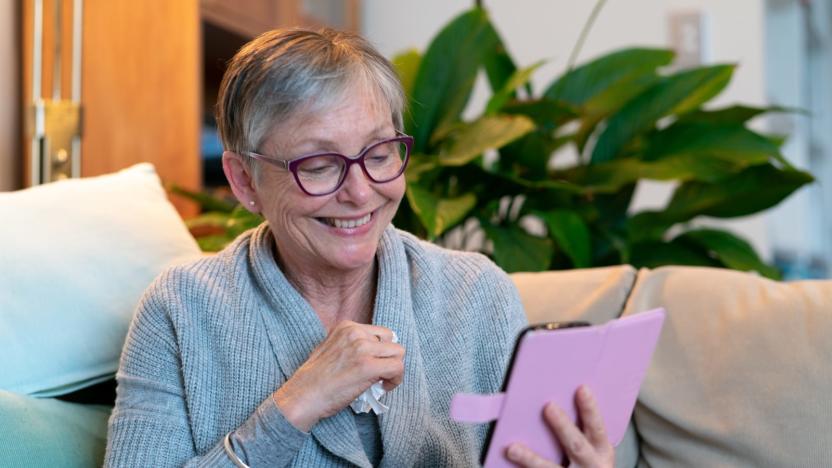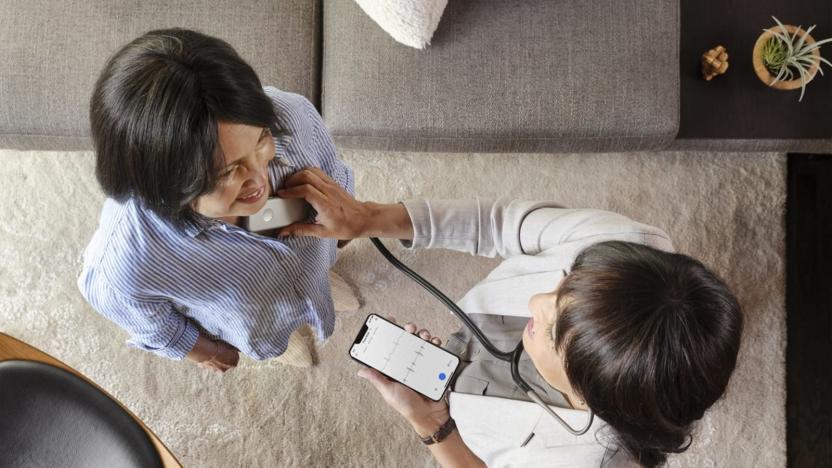telehealth
Latest

MIT uses wireless signals and AI to monitor COVID-19 patients at home
A team from MIT's CSAIL developed a wireless device that uses AI to monitor COVID-19 patients in their homes.

FCC approves $200 million plan to fund COVID-19 telehealth services
The FCC has approved $200 million in telehealth funding for healthcare providers responding to the coronavirus pandemic. With federal funding made available through the CARES Act, the COVID-19 Telehealth Program will help providers pay for the broadband connectivity and devices required to provide healthcare remotely.

FCC outlines $200 million COVID-19 telehealth plan
Today, the FCC announced a few additional measures to help the US during the coronavirus pandemic. Chairman Ajit Pai shared plans for a $200 million COVID-19 Telehealth Program, which would equip healthcare providers with the broadband connectivity and devices they need to provide telehealth services. The FCC also eased off its ongoing crackdown on cell phone subsidy abuse, saying that it won't de-enroll participants until at least May 29th.

Medicare expands US telehealth coverage in response to COVID-19
In an effort to keep seniors at home during the coronavirus outbreak, Medicare is expanding coverage for telehealth nationwide. Medicare patients can now connect with doctors and other providers through phone or video. This should allow millions of older adults to seek medical advice without potentially exposing themselves or others to the virus.

Ro aims to bring its online COVID-19 screenings to all of the US this week
If you feel sick and think you might have contracted the COVID-19 virus, one thing you shouldn't do is walk into a clinic without calling ahead. There's a chance of putting healthcare workers and other patients at risk, not to mention yourself if the visit is unnecessary and unplanned. An intermediary online step could help you decide if you need to be tested, though. Ro -- better known for its erectile dysfunction medication program Roman -- set up a system earlier this month that connects patients with physicians to decide on if and how they should be tested. A Ro representative says that the company hopes to make the service available to everyone in the US by the end of the week.

The FDA is fast-tracking an algorithm that screens for heart failure
Today, the FDA granted "breakthrough status" to an algorithm that could make screening for heart failure more accessible -- both in traditional clinics and telehealth settings. The algorithm uses a deep neural network developed by digital health company Eko and Mayo Clinic. With as little as 15 seconds of electrocardiogram (ECG) data, it can identify Left Ventricular Ejection Fraction (LVEF), a measure that's commonly used to diagnose patients with heart failure.

NHS starts offering GP appointments via video call
You're often more likely to win a scratchcard jackpot than get a short-notice appointment at your local GP, so it's no surprise there are now a number of services offering nigh immediate, private consultations via smartphone video chat. Babylon Health is one such service that's just become available on the NHS, meaning eligible patients can book a free video consultation and chat to a GP within two hours, and sometimes much sooner. GPs can make referrals, send prescriptions to a nearby pharmacy, and users can rewatch consultations and review the doctor's notes at any time within the app.

One consultation was enough to sell me on online doctors
This time last week, I was writhing in pain. I had a minor surgery a while back that left me susceptible to infections. This doesn't happen very often -- four times over the past decade -- but when it does, it's not fun. One side of my face swells grotesquely, brimming with pus deep within. Positioned equidistant between my mouth and temple, this swelling brings on major headaches and makes eating painful. I get a black eye, and, if left unchecked, that eye gets forced shut. Without going into more detail, it's very unpleasant.

Intel and GE form healthcare joint venture, sluggish Atom-powered home servants on the way
Okay, so maybe we're only half-kidding about the prospective of having home health robots that can barely multitask, but we're hoping that Intel and GE at least have the heart to equip any domicile servants with a Core i3 or stronger. If you haven't heard, the two aforesaid companies have joined hands this week to create a 50/50 joint venture, one that'll result in the creation of a new healthcare company "focused on telehealth and independent living." Financial terms aren't being disclosed, but the goal is pretty simple: "to use technology to bring more effective healthcare into millions of homes and to improve the lives of seniors and people with chronic conditions." It's a bit unclear at this point what all the duo will be creating, but we wouldn't be shocked to see medical tablets, Core i7 980X-based "medical monitoring PCs" and Moorestown-powered "I've fallen and I can't get up!" neck pieces surface in the near future.

Aerotel's GeoSkeeper lets everyone know exactly where you've fallen and can't get up
For some reason, all the promising telehealth devices we come across seem to suffer from the same bad case of vaporitis, but we'll let these awful renders of Aerotel's GeoSkeeper slide because the idea is actually quite promising. The watch features a GPS receiver, which allows the unit to send your position to rescuers over the built-in GSM / GPRS data module. Of course, that's not a new idea either, but Aerotel's included speakerphone functionality and remote programmability to the device -- meaning everyone will know exactly where you are when you look like a giant nerd using this thing.

RTX Telehealth Monitor keeps you in contact with your doctor
We've seen a few remote health monitor concepts, but they all seem like overkill compared to RTX's Telehealth Monitor, which strips things down to the basics. The device wirelessly connects to a range of sensors like blood glucose monitors, scales, and and blood pressure monitors, and sends data to healthcare providers over a phone line connection. In addition, the unit can be programmed to ask diagnostic questions, give dosage reminders, and communicate other information from doctor to patient. Intriguing, but come on -- not even our grandparents have landlines anymore.[Via MedGadget]




